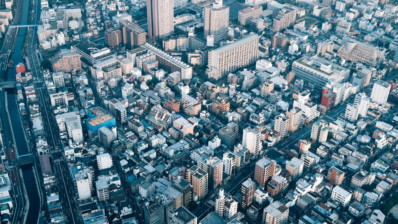According to a new study led by scientists at the Barcelona Institute for Global Health (ISGlobal), night-time exposure to outdoor artificial light – in particular to the blue light spectrum – may increase the risk of colorectal cancer.
Other adverse health effects, including sleep disorders, obesity and increased risk of other types of cancer, had previously been found associated to night-time exposure to artificial light, especially amongst night-shift workers. In the case of blue-spectrum light – emitted by some white LEDs and tablet or phone screens – a link was recently found by ISGlobal researchers to increased risk of breast and prostate cancer.
Night-time exposure to blue light – emitted by white LEDs and tablet or phone screens – has been linked to an increase risk of breast, prostate and now colorectal cancer.
“Using satellite images of outdoor lighting in Barcelona and Madrid, we analysed 2,000 adults in Barcelona and Madrid, of whom 660 had colorectal cancer – the third most common type of cancer worldwide,” explained Manolis Kogevinas, Scientific Director of the Severo Ochoa Distinction at ISGlobal and coordinator of the new study.
The results showed that participants with the highest exposures to blue light had a 60% higher risk of developing colorectal cancer than the less exposed population.
Garcia-Saenz, Ariadna; Sánchez de Miguel, Alejandro; Espinosa, Ana; Costas, Laura; Aragonés, Nuria; Tonne, Cathryn; Moreno, Victor; Pérez-Gómez, Beatriz; Valentin, Antonia; Pollán, Marina; Castaño-Vinyal, Gemma; Aubé, Martin; Kogevinas, Manolis. Association between outdoor light-at-night exposure and colorectal cancer in Spain (MCC-Spain study). Epidemiology. July 2020.






